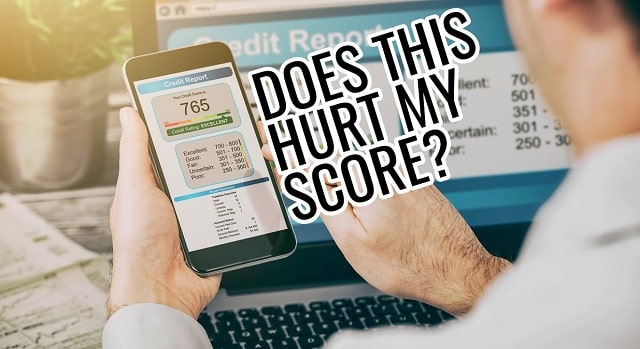
In today's society, credit scores are critical tools for everyone's financial health. There are so many moving parts to your credit score that it is not surprising many feel overwhelmed trying to determine what causes their score to go up or down. Plus, there is a lot of misinformation out there that can lead you the wrong way. You may not realize it, but there are a number of things people think hurt their scores, but actually don’t. In fact, doing some of these things can actually help your credit score.
Here are four surprising things that don’t hurt your credit score.
How Your Credit Score Is Calculated
Your credit score is a number that lenders use to decide whether to lend you money and how much.
The three main credit scoring models are:
● FICO Score: This is the most popular credit scoring model, and it is used by 95% of all lenders.
● VantageScore 3.0: This is a new model that was introduced in late 2017, and it is used by about 30% of lenders.
● CSM: This model is proprietary to FICO, and it is used by about 5% of lenders.
Each model utilizes different factors to weigh your score. However, there are five standard factors they all use:
● Payment history
● Credit utilization
● Age of credit
● Credit mix
● New credit inquiries
Four Things That Don't Affect Your Credit Score As Much As You Think
1. Not Carrying An Outstanding Balance On Your Credit Cards
Many people think that to have a good credit score, you need to carry debt, but the opposite is true. Having no outstanding balances is actually a positive in most cases because it shows that you’re a responsible borrower. Keeping your balances low is a critical factor for your financial health, but it can be challenging to do when you have made overspending mistakes or have financial issues. You might consider trying to consolidate credit card debts to a personal loan to help get you back on track if that's the case.
2. Being Late On A Utility Bill
Although being late on a utility bill can affect your overall credit score, that is only if you are so behind that your account is sent to collections. If your account is current and you are just a few days late paying, that won't affect your credit score.
3. Overdrafting Your Checking Account
Banks don't report to the credit bureaus, so if you are consistently overdrafting your checking or savings account, you shouldn't expect it to affect your credit report. However, banks do report to ChexSystems. This is similar to a credit bureau in that it is a centralized location where banks keep records of your overall banking activity, such as the number of accounts opened and how many overdrafts you have had. If you start getting excessive overdrafts, not only will you rack up hefty fees, but you may have trouble trying to open bank accounts in the future.
4. Applying For New Credit
You have most likely heard that applying for credit cards or loans is a bad idea because it can cause your credit score to go down, but this is only partially true. Credit inquiries, also known as "hard pulls" do show up on your credit report, but they only account for 10% of your total FICO score. If you are approved for a consolidation loan or new credit card, the positive changes to your credit utilization (which accounts for 30% of your total FICO score) will more than make up for the ding the hard pull caused.
The Bottom Line On Better Credit Scores
Overall, your credit score is a relatively static number that can't be changed overnight. However, if you have been making responsible financial decisions and your credit report shows that you are a low-risk borrower, you shouldn't expect any negative impact from any of the above situations.
